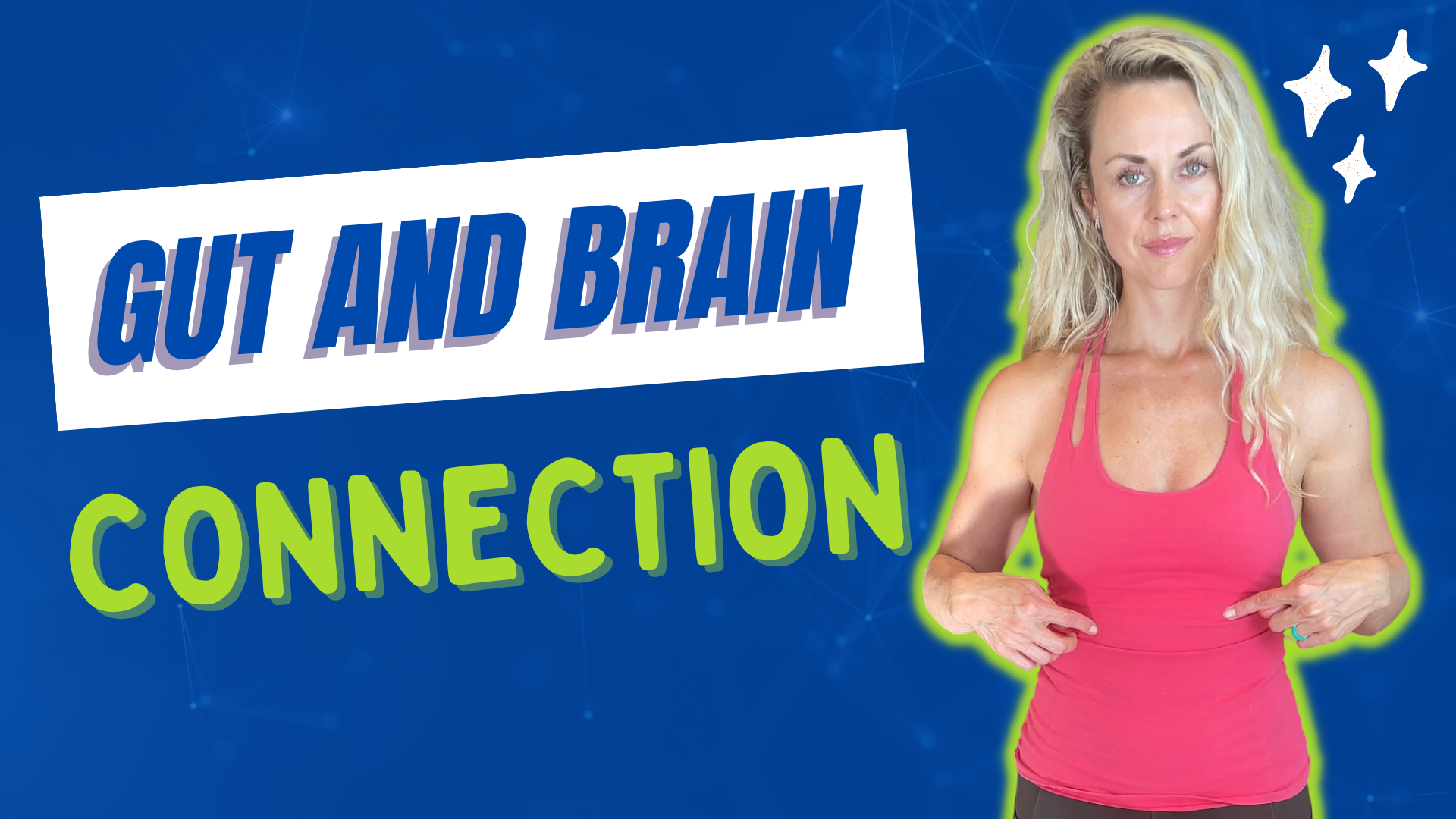Have you ever experienced “butterflies in your stomach” before an important presentation or felt your appetite disappear during a stressful situation? Well, you’re not alone. Our gut and brain are closely connected, and this communication is referred to as the gut-brain connection.
In this blog post, we’ll explore how this two-way communication occurs and affects our overall well-being. Specifically, we’ll examine the three primary pathways that connect our gut and brain. So, get ready to learn something new and fascinating about the incredible relationship between our gut and brain!
Rather watch or listen?
Why Understanding the Gut-Brain Connection is Important
Whether you have anxiety, depression, headaches, brain fog, or digestive issues like bloating, diarrhea, constipation, reflux, autoimmune disease, skin issues, or neurodegenerative diseases, we must consider our gut-brain access. This amazing bi-directional communication between our gut and brain is connected through three primary pathways.
Three Pathways That Connect The Gut And The Brain
Pathway 1: Nervous System
The first pathway, the nervous system pathway, is connected via the vagus nerve.
As you may have read in my previous posts, the vagus nerve is our wandering nerve. It is a pair of cranial nerves (10th cranial nerve). It wanders down with branches into the throat, ear, esophagus, lung, heart, and entire digestive tract. The vagus nerve is also 80% of our parasympathetic system, which connects our gut and brain. It is one of the best visual representations of this connection.
Therefore, whether we think about specific health conditions or concerns, we want to understand and appreciate this connection and how we can influence it. For example, we can work on diaphragmatic breathing before we eat to bring ourselves to a parasympathetic state and optimize our gut-brain connection.
Pathway 2: Hormonal
The second pathway is the hormonal connection. We want to think of our neurotransmitters, which are our chemical messengers. The gut bacteria help produce these neurotransmitters, so we need proper nutrient intake for that.
For example, approximately 90 percent of our happiness hormone, serotonin, is in our gut, and around 50 percent of our dopamine is also there.
GABA, which inhibits anxiety and fear, is also in our gut. Therefore, to optimize brain health, we can address our gut. Gut dysbiosis, for example, will likely contribute to health conditions that may include but not be limited to anxiety and depression.
Pathway 3: Immune System
The third pathway is the immune connection. Seventy percent of the immune system is in our gut, which is called GALT (gut-associated lymphoid tissue).
We want to consider that if there is inflammation in the gut from food sensitivities and allergies, parasitic infections, pathogenic infections, leaky gut, or IBS/inflammatory bowel disease, this can cause systemic or excessive inflammation.
If we have inflammation in the gut and the lymphoid tissue, which is 70% of our entire immune system, it can ultimately affect everything in our body, especially the gut-brain connection.
The Bottom Line
If you’re reading this, chances are you’ve seen others about the gut-brain connection. I hope that this information has been useful and that you find the topic as fascinating as I do.
If you enjoyed this post, please give it a like, share it with your friends, and subscribe to our YouTube channel, The Movement Paradigm, for more weekly tips on mindset, nutrition, and movement.
If you’re looking for support on your health journey, we’re here to help! Feel free to reach out to us for a discovery session.
Other things that might interest you:

